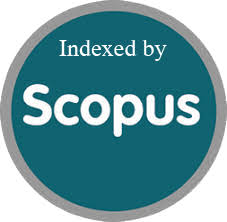Water-Bath Calibration Device with Data Storage Using Six Thermocouple Sensor
Abstract
Uneven temperature distribution in the water-bath chamber can cause the temperature conditions in the chamber are not the same. Temperature, humidity, atmospheric pressure, and dust particles are the main factors that adversely affect the accuracy of the water bath's temperature. Therefore, the purpose of this study is to design a calibration device for water-bath with six-channel temperature sensors. In this study, the system able to detect temperatures at each point. The K-type thermocouple sensor is used to detect the temperature at each chamber point with the help of the MAX6675 module as a signal conditioning amplifier. The sensor readings will be displayed on a personal computer using a USB cable, and the sensor readings can be stored on a personal computer in the TXT format so that the data can be reprocessed using Microsoft Excel for further calibration purposes. This study aims to facilitate the calibration process and the processing of calibration data. Based on the obtained measurements, a temperature error for 40 ° C channel one 1.4 %, channel two 1.8%, channel three 0.4%, channel four 0.2%, channel five 0.2% and channel 6 0.2%. Furthermore, the accuracy for temperature setting of 50 ° C for channel one 2.25%, channel two 2.26%, channel three 2.00%, channel four 2.44%, channel five 2% and channel six 1.6%. Moreover, the accuracy for setting temperature 60 ° C for channel one is 0.3%, channel two 0.6%, channel three 0.5%, channel four 1.5%, channel five 2% and channel six 1.8%. Based on the test results, this design has the lowest error of 0.2% and the highest error of 2.44%. The results of this research can be implemented as a water bath calibrator device to maintain the temperature stability of the instrument.
Downloads
Copyright (c) 2020 Yanti kusumawardani, Endang Dian Setioningsih, Dyah Titisari

This work is licensed under a Creative Commons Attribution-ShareAlike 4.0 International License.
Authors who publish with this journal agree to the following terms:
- Authors retain copyright and grant the journal right of first publication with the work simultaneously licensed under a Creative Commons Attribution-ShareAlikel 4.0 International (CC BY-SA 4.0) that allows others to share the work with an acknowledgement of the work's authorship and initial publication in this journal.
- Authors are able to enter into separate, additional contractual arrangements for the non-exclusive distribution of the journal's published version of the work (e.g., post it to an institutional repository or publish it in a book), with an acknowledgement of its initial publication in this journal.
- Authors are permitted and encouraged to post their work online (e.g., in institutional repositories or on their website) prior to and during the submission process, as it can lead to productive exchanges, as well as earlier and greater citation of published work (See The Effect of Open Access).





.png)
.png)
.png)
.png)
.png)
